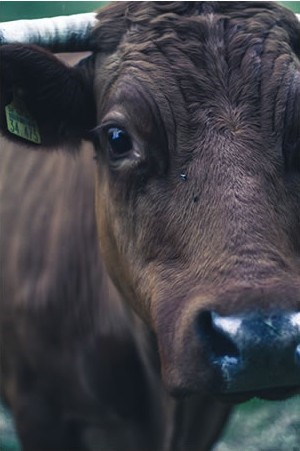Why go veg?

Depending on who you ask, the reasons for going veg can be few or many. For some, it is the treatment of animals, for others it is their overall outlook towards the environment, and for some it is for health. No matter what the initial reason, going veg helps animals, lessens your environmental footprint, and can improve your health.
 For Animals
For Animals
For many vegans and some vegetarians, the lifestyle is chosen based on their animal rights activism and beliefs. Some believe in the idea of abolition-that in no circumstance should there be justification for killing or eating animals. Cage-free chickens, free range cows, organic pastures, and so on, do not affect or change this position. Animals are seen as having the inalienable right to live freely and not be raised or killed for their meat, fur, eggs, milk, and so on.
For others, going veg is more of a welfarist movement, in response to the conditions animals are kept in. With the rise of industrial or factory farms, the treatment of animals in every sphere-whether it be those raised for meat, their fur/skin, or for their milk and eggs, has worsened, and many choose to go veg as a way of boycotting this mistreatment. In this way, if the means of keeping animals was improved (cage-free, free-range, free-run), welfarists do not tend to see a problem with killing animals as long as it is done humanely.

For the environment
For many people, going veg is a response to the deteriorating condition of the environment. With industrialized farming contributing to global warming, deforestation, pollution and taking up resources such as water and land, environmentalists see the importance of going veg in order to lessen their impact on the planet.

For health
One of the main reasons people decide to cut out meat and animal products is for their health. Going veg can help with a variety of health goals when a plant-based diet is properly followed. Veganism often signifies a shift towards incorporating more plant-based foods into a diet, contributing to the improvement of overall health and wellbeing. For many common health conditions and ailments, leaning towards a plant-based lifestyle can make a huge impact.
Definitions of veg*n types
Within the veg lifestyle, there are many subcategories that exist. Some options include:
Vegan - No animal products are consumed.
Raw vegan - Food is not heated above 118 degrees.
Vegetarian - Lacto-ovo vegetarianism includes dairy products & eggs. Similarly a lacto vegetarian consumes dairy but not eggs, and an ovo vegetarian consumes eggs but not dairy.
Fruitarian - Only fruits and vegetables that can be picked without destroying the plant itself can be eaten (apples, for example).
Pescatarian - Seafood is consumed, but no other animals. While not technically vegetarian, it’s worth noting this diet as it’s often a stepping stone for many people in becoming vegan or vegetarian.
